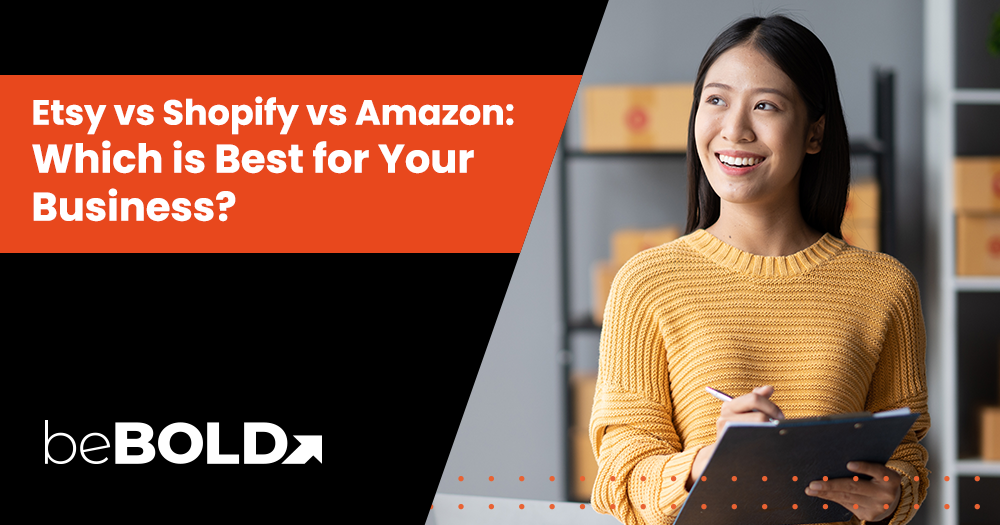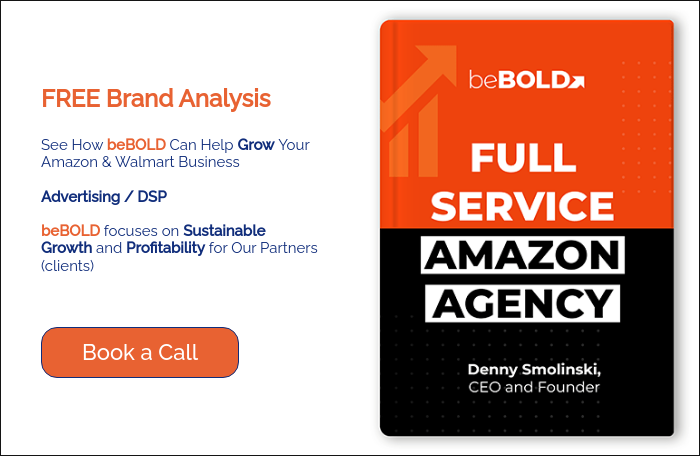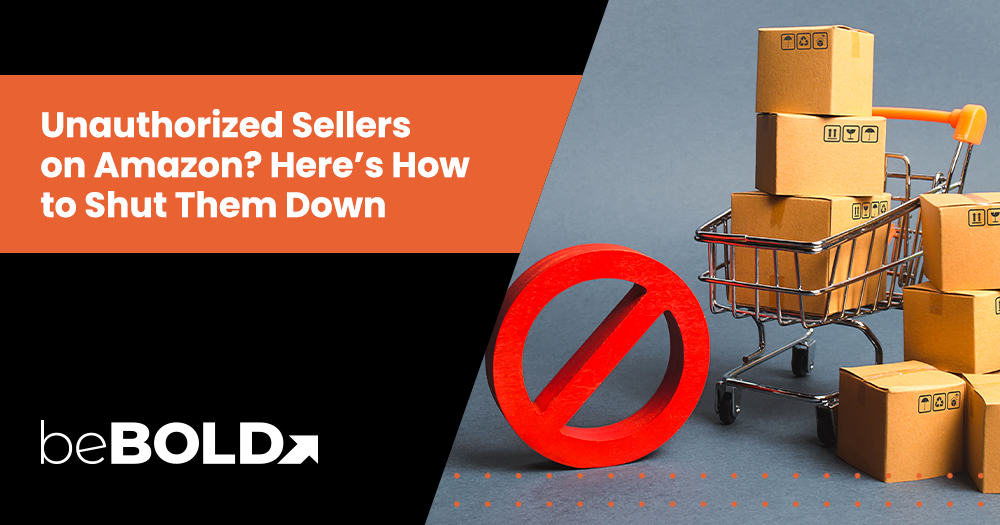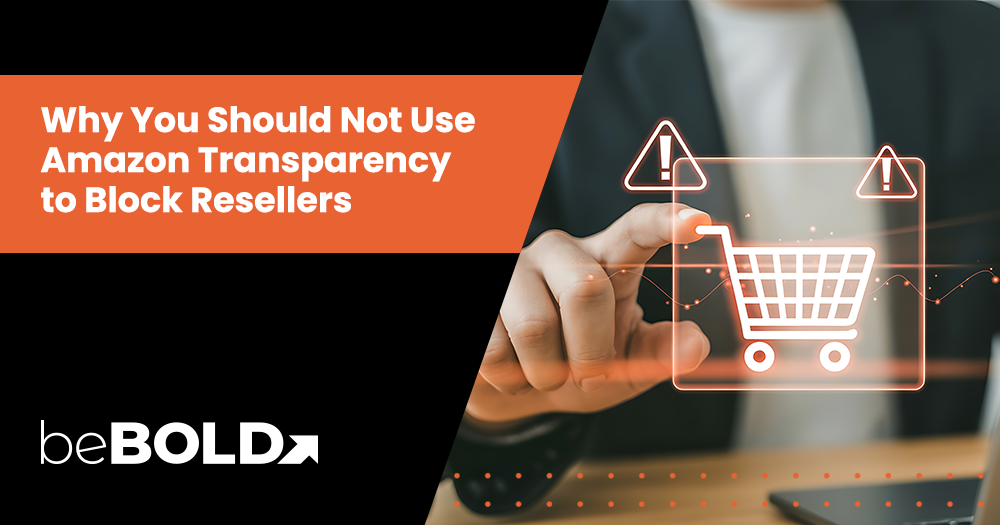Key Highlights
- Etsy is perfect for handmade and niche products with a built-in audience, but limited scalability and high competition.
- Shopify offers complete control over your brand, but requires investment in traffic and marketing strategies for success.
- Amazon provides massive reach with FBA logistics, great for high-demand products, but it comes with higher fees and fierce competition.
- Etsy caters to small-scale, artisanal businesses, Shopify provides full flexibility to build your brand, and Amazon excels for mass-market, high-volume sellers.
- When scaling your business, Etsy is ideal for niche products, Shopify for custom-branded growth, and Amazon for broad market exposure.
- Platform selection depends on your product type, market size, and growth strategy; choose wisely for long-term success.
- beBOLD Digital helps optimize your Amazon presence, ensuring visibility, competitive pricing, and smooth logistics management.
When it comes to launching or scaling an eCommerce business, a few names stand out, like Etsy, Shopify, and Amazon. Etsy caters to handmade and vintage goods, Shopify empowers you to build your own store, and Amazon connects you to millions of active buyers instantly. But the one you choose can directly impact your visibility, profit margins, and long-term brand control. Let’s break down the key differences so you can pick the best fit for your business goals.
Breaking Down the Differences: Etsy, Shopify, and Amazon Explained

Each platform caters to specific business needs. Let’s dive into the key differences in pricing, ease of use, sales features, and customer support.
|
Feature |
Etsy |
Shopify |
Amazon |
|
Fees |
$0.20/listing + 5% + 3% payment fee |
From $29/mo + transaction fees |
$39.99/mo + referral fees |
|
Best For |
Handmade, niche, small-scale sellers |
Brand builders & scale-ready stores |
High-volume, mass-market sellers |
|
Ease of Use |
Super simple, great for beginners |
Customizable but needs a learning curve |
Feature-rich, but not beginner-friendly |
|
Sales Features |
Etsy Ads, social selling, vintage-friendly |
Apps, subscriptions, payment & shipping integrations |
FBA handles logistics, limited design control |
|
Marketing & SEO |
Basic SEO relies on Etsy traffic |
Full control; SEO, email, social ads |
Strong internal ads, limited external SEO |
|
Support & Security |
24/7 support (can be slow) |
Fast 24/7 help, great resources |
24/7 support, but often tricky to deal with |
1. Pricing and Fees
Etsy charges a $0.20 listing fee and a 5% transaction fee, with a 3% + $0.25 payment processing fee. Shopify costs start at an upfront monthly subscription fee of $29 per month, plus transaction fees. Meanwhile, to sell on Amazon, you need to pay a subscription fee of $39.99 per month plus variable referral fees. Etsy is budget-friendly for smaller shops, Shopify provides complete control for growth, and Amazon can get expensive for high-volume sellers.
2. User Experience and Ease of Use
Etsy is beginner-friendly, with a simple interface that's ideal for small businesses. Shopify offers drag-and-drop design and customizable themes, though it requires more learning. Amazon is the most complex, with a powerful backend that, although not as intuitive, offers robust tools for scaling.
3. Sales Features and Integration
Etsy’s focus is on handmade and vintage goods, with a specialized marketplace integrated with Etsy Ads and social media support. Shopify excels with multiple payment options, shipping integrations, and an extensive app marketplace. Amazon leads with FBA, handling everything from inventory to shipping, but offers limited customization options.
4. Marketing and SEO Capabilities
Etsy allows basic SEO with keyword tags and Etsy Ads, but it depends on marketplace traffic. Shopify offers complete control over SEO, email marketing, and social media integrations. Amazon focuses on sponsored ads and SEO within its marketplace, with less flexibility for sellers outside their ecosystem.
5. Customer Support and Security
Etsy offers 24/7 support, although it can be somewhat slow. Shopify offers 24/7 chat, email, and phone support, along with a comprehensive knowledge base. Amazon’s support is available 24/7, but it can be slow and complex to navigate. All platforms ensure secure transactions and fraud protection.
Pros and Cons of Etsy, Shopify, and Amazon
Etsy, Shopify, and Amazon each have their pros and cons. Whether it's Shopify, Amazon, or Etsy, each platform is suitable for different business types.
1. Etsy Advantages and Limitations

Etsy is an excellent platform for individuals who create things and want to sell their own work.
Advantages:
- Niche Audience: Etsy excels at catering to a niche market for handmade, vintage, and unique products. This built-in audience makes it easier to connect with buyers looking for one-of-a-kind items.
- Community Focus: Etsy's strong community of like-minded buyers and sellers fosters an environment where artisans and small businesses thrive.
- Ease of Setup: With no need for technical expertise, Etsy provides an intuitive platform that enables sellers to set up and start selling quickly.
Limitations:
- Limited Customization: Etsy offers minimal options for personalizing store designs, making it challenging to differentiate oneself from other sellers in a crowded marketplace.
- High Transaction Fees: Etsy’s fees can be on the higher side, including listing fees, transaction fees, and payment processing fees.
- Competition: As the platform expands, more sellers are entering the market, intensifying competition and making it increasingly challenging to stand out.
Shopify Advantages and Limitations

Shopify works wonders for those who want to have their own store to sell online.
Advantages:
- Scalability: Shopify’s platform grows with your business, offering various pricing tiers and infrastructure that can handle increasing transactions as you scale.
- Design Freedom: With fully customizable templates and design flexibility, Shopify allows you to create a unique, branded online store.
- App Ecosystem: Shopify’s vast App Store offers numerous integrations, providing you with the flexibility to extend your store’s functionality. A Shopify Development Agency can assist with selecting and integrating the most effective apps to meet your specific business needs.
- 24/7 Support: Shopify offers round-the-clock customer support, ensuring assistance is available whenever you need it.
Limitations:
- Transaction Fees: Shopify charges additional transaction fees unless you use Shopify Payments, which can impact your margins.
- Managing Traffic: Unlike marketplaces with built-in audiences, Shopify requires sellers to drive their own traffic, which may require an investment in marketing.
- Technical Management: As a fully self-hosted platform, Shopify may require sellers to manage technical aspects, including design, maintenance, and troubleshooting.
Amazon Advantages and Limitations

Amazon provides sellers with a significant opportunity to reach people worldwide.
Advantages:
- Massive Audience: Amazon provides access to a vast global customer base, offering unparalleled exposure for your products.
- Fulfillment by Amazon (FBA): Amazon FBA service handles storage, packaging, and shipping, saving sellers time and offering faster delivery options for customers.
- Logistical Infrastructure: Amazon’s robust logistical network ensures fast, reliable shipping, even for sellers using FBA, which enhances customer satisfaction.
- Reputation: With Amazon’s trusted name, products often see higher sales conversion rates, as buyers are more likely to purchase from a well-known marketplace.
Limitations:
- High Competition: Standing out among millions of sellers can be difficult, especially in popular product categories.
- High Fees: Amazon’s referral fees can be significantly higher than those of other platforms, potentially impacting your profit margins.
- Strict Seller Policies: Amazon has stringent seller policies, and non-compliance can lead to penalties or even suspension, making it challenging to maintain your business’s standing on the platform.
In-Depth Comparison: Which Platform Suits Your Business Needs?
Whether you're a small business just starting out or a large-scale seller scaling up, each platform, Etsy, Shopify, and Amazon, offers different advantages. Let’s break down how each platform caters to businesses at various stages of growth and product types.
Small-Scale vs Large-Scale Operations
When selecting a platform, it’s important to assess whether you're in the testing phase or scaling up for large-scale operations. Each platform offers distinct advantages depending on the size of your business. Here’s how Etsy, Shopify, and Amazon align with small-scale versus large-scale needs:
|
Platform |
Small-Scale Operations |
Large-Scale Operations |
Why It's Suitable |
|
Etsy |
Great for testing niche ideas with low upfront cost and minimal competition. |
Limited scalability for high-volume operations due to the marketplace structure. |
Ideal for small, artisanal businesses testing unique products in a niche market. |
|
Shopify |
Excellent for building a brand and testing new ideas with full control over design and customer experience. |
Scales well with robust integrations, customizable features, and extensive support for growth. |
Perfect for those wanting full control over branding, but requires significant marketing effort to scale. |
|
Amazon |
Not the best for testing small ideas due to high competition and fees. |
Ideal for scaling with access to a massive audience, fulfillment by Amazon, and established infrastructure. |
Best for businesses looking to sell in high volumes and leverage Amazon’s global reach and logistics. |
Product Type and Market Fit
When deciding between Etsy, Shopify, and Amazon, it’s essential to consider your product type and where it fits in the market. Whether you're selling handmade, branded, mass-market, or niche items, each platform caters to different needs. Here’s how each one suits various product types:
|
Platform |
Best For |
Product Fit |
Examples |
|
Etsy |
Handmade, vintage, or unique items |
Etsy is great for artisanal, custom, and handmade products. Ideal for small businesses targeting a niche market. |
Personalized jewelry, handmade home decor, and custom clothing |
|
Shopify |
Branded, niche, and direct-to-consumer products |
Best for building a unique brand, offering flexibility and control over your store. Suitable for scaling your business with marketing. |
Organic skincare brands, custom pet products, and fashion brands |
|
Amazon |
Mass-market, high-demand items |
Ideal for large volume and widely-recognized products. Best for products with broad appeal, using Amazon's massive customer base. |
Electronics, household essentials, books, fast-moving consumer goods |
Platform Suitability by Product Category
Choosing the right platform depends on the type of product you are offering. Below, we will discuss how each platform aligns with specific business categories.
1. Beauty Products
Selling beauty products? The platform you choose makes all the difference. Let’s see which one fits your brand’s vibe and needs.
Etsy

Etsy is perfect for handmade, organic, or artisanal beauty products. If you’re an indie brand with a unique story, Etsy’s loyal, niche audience is your home. But scalability? Not so much. Etsy’s marketplace style also makes it challenging to position as a premium brand.
Shopify

Want complete control over your beauty brand’s look and feel? Shopify is the way to go. With full design flexibility, subscriptions, and bundling options, you can build a unique brand identity. But driving traffic to your own website? That’s all on you. Ads and SEO are key, but they scale well as your product line grows.
Amazon

If you’re aiming for mass-market beauty sales, Amazon has the reach. You’ll tap into millions of potential customers with competitive product listings, but the competition’s fierce. Strict product rules and the need for strong reviews, combined with Prime shipping, can make it a bit of a grind, but the payoff is huge for the right products.
2. Pet Products
Selling pet products does well on sites like Etsy and Amazon. These places cater to a large customer base of people who love animals.
Etsy

Etsy shines for custom and novelty pet products, like handmade collars or personalized pet bowls. It’s perfect for pet brands that tell a story or cater to niche markets. However, if you’re dealing in bulk or utility-based pet goods, Etsy might not be your best bet.
Shopify
Shopify is ideal for niche pet brands with recurring buyers, such as those offering treats or pet supplements. The ability to offer subscription models and use upsell apps makes it a solid choice for building long-term customer relationships. Just know, marketing and driving traffic will be on you.
Amazon

If you’re selling pet essentials or fast-moving goods, Amazon is the place. Whether it's food, toys, or grooming supplies, Amazon excels in high-volume products. Competition is intense, and margins can be tight, but with FBA logistics on your side, it’s an efficient and scalable option.
3. Baby & Kids Products
Here’s how Etsy, Shopify, and Amazon stack up for sellers in the baby and kids’ product space, because what you sell (and to whom) makes all the difference.
Etsy

Etsy attracts parents hunting for unique, handmade, and eco-friendly baby products. Think personalized blankets, toys, and clothes for a boutique feel. However, mass-market items won’t do as well here; Etsy is more about custom, standout pieces.
Shopify

For growing DTC brands, especially those targeting millennial and Gen Z parents, Shopify is a great fit. With endless customization and storytelling opportunities, you can build a loyal following. Add reviews, registries, and subscriptions to enhance the customer experience.
Amazon

Parents flock to Amazon for its convenience and fast delivery, making it the perfect choice for everyday baby essentials like diapers, formula, and gear. If you want to stand out, focus on product safety, reviews, and brand reputation, but expect fierce competition, especially without paid ads.
The Final Verdict: Choosing the Right Platform
When choosing the right platform, it depends on your business goals. Shopify offers full control, from meta tags and custom URL slugs to sitemaps and image alt text, making it ideal for businesses focused on long-term SEO growth. Etsy, while great for handmade and creative products, can be restrictive; it auto-generates titles and tags, which may not align with your SEO strategy.
Lastly, Amazon provides unmatched reach for trending or fast-moving products, but it comes with heavy competition. Don’t overlook social media platforms like Instagram, TikTok, or Facebook—they’re powerful channels for testing products, building brand presence, or even selling directly.
Maximize Your Amazon Success with beBOLD Digital
If you’re ready to make Amazon your primary sales channel, expert support can make all the difference. beBOLD Digital is a leading Amazon agency dedicated to helping brands stand out and scale faster on the world’s largest marketplace.
From optimizing your product listings and running high-impact ad campaigns to managing your Amazon storefront and leveraging tools like FBA for seamless fulfillment, beBOLD Digital’s team of Amazon specialists handles every detail. Their proven strategies help you boost visibility, increase conversions, and build a loyal customer base so you can focus on growing your business, not just managing it.
Ready to unlock your brand’s full potential on Amazon? Book a call with us and see how expert Amazon management can take your business to the next level.
Conclusion
Choosing the right online marketplace platform for your own online store is crucial to achieving your business goals. Whether you're selling unique, handmade items, building a brand, or tapping into a massive market, Etsy, Shopify, and Amazon each offer distinct advantages.
Etsy is fantastic for creatives, Shopify gives you complete control and scalability, and Amazon offers access to a global audience with robust logistics. Consider factors such as ease of use, fees, target audience, and customer experience when making a decision.
Take the time to evaluate your product, market, and goals to ensure you pick the platform that best supports your path to success.
Frequently Asked Questions
How does the choice between Etsy, Shopify, and Amazon affect my business’s scalability?
Choosing between Shopify, Etsy, and Amazon can have a significant impact on your business growth. Shopify offers more customization options when you want to expand your store. Etsy is good if you have a small, special market. Amazon attracts a large number of shoppers, allowing you to gain significant market share quickly; however, your brand may not stand out as prominently. Knowing how this works helps you pick the one that fits your plans to be bigger.
Which platform provides the best user experience for new entrepreneurs?
When evaluating user experience for new business owners, Shopify is a great option. It features an intuitive interface and numerous helpful tools. Etsy really stands out for its strong community support. Amazon offers numerous features to use. Ultimately, the right one depends on what you prefer and what your business needs most.
How do transaction fees compare across these platforms?
Transaction fees are essential when considering how much money you can make on Shopify, Amazon, and Etsy. On Etsy, you pay fees for listing your items and for every transaction. Shopify charges a set monthly fee, and you also incur additional costs for payment processing. Amazon charges different fees depending on the category and the seller plan you select. All this can affect how much you spend on each of these platforms.
Unlock Your Amazon Potential; Contact beBOLD Digital now!










Comments